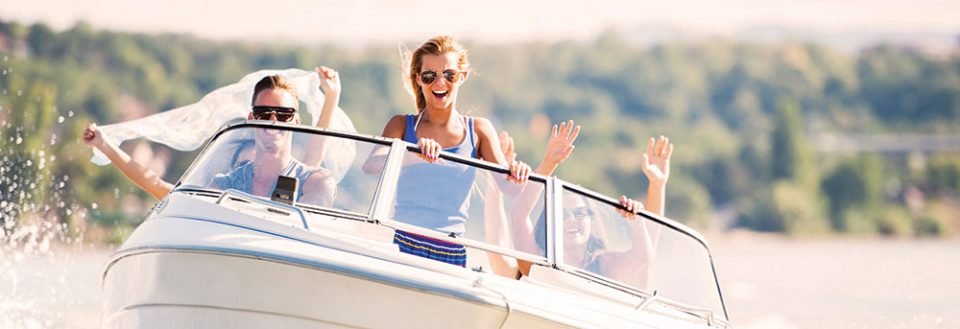
<!DOCTYPE html PUBLIC "-//W3C//DTD HTML 4.0 Transitional//EN" "http://www.w3.org/TR/REC-html40/loose.dtd“>
Play It Safe and Enhance Summer Enjoyment with These 6 Boating Tips
by Lisa A. Beach
For many adolescents, spending a day by the lake with friends is unbeatable. Before you commend their choice to step away from screens and embrace the outdoors, it’s essential to discuss guidelines that will help ensure their day is enjoyable and safe.
Your teens may still require reminders to use sunscreen, but they face more serious concerns—like the risks associated with boating, swimming, and consuming alcohol. Engaging in candid conversations is critical.
For starters, consider sharing these alarming statistics:
• Drowning is the third leading cause of injury-related fatalities among individuals aged 19 and below, as reported by Safe Kids Worldwide.
• Close to 85% of those who drown in boating accidents in Texas were not wearing life jackets, according to the Texas Parks and Wildlife Department.
• Alcohol is involved in 50% of all boating incidents, as per the Boat Owners Association of the United States.
• In Texas in 2015, alcohol use contributed to seven boating accidents, six injuries, and one fatality, according to the U.S. Coast Guard.
If your kids are anything like most teens, they might struggle with good judgment and feel invincible.
“A teenager’s frontal lobe, responsible for judgment and decision-making, is still developing,” says Stacie R. Allphin MS, LCDC, Director of Adolescent Services at Memorial Hermann Prevention and Recovery Center in Houston. “This explains why teens act impulsively and seem to make poor choices,” she adds. This tendency often leads them to engage in high-risk activities, such as jet skiing under the influence or jumping from heights into water.
Introducing alcohol to the equation significantly increases the likelihood of an incident at the lake.
“Allphin recalls a tragic event a few years back: a group of teenagers marked their high school graduation with a rented party boat, featuring a slide and diving board. They were drinking, and sadly, one of them drowned after jumping into the water heavily intoxicated and subsequently losing consciousness,” she recounts.
Before your teens decide to crank up the music and enjoy a drink while boating, remind them that operating a boat under the influence is as much a crime as it is on land. Texas has a Boating While Intoxicated (BWI) law which states that “anyone appearing impaired and/or with a blood alcohol content of 0.08 or higher while controlling a boat can face arrest.” This may lead to penalties including up to 180 days in jail, fines reaching $2,000, and suspension of their driving privileges.
Even in the absence of alcohol, consider the liabilities that come into play if the individual operating your boat or jet ski causes an accident.
“The liabilities and regulations concerning vehicle operation closely mirror those of boating,” advises Robert L. Chaiken, an attorney and partner at Chaiken & Chaiken P.C. in Plano, specializing in civil litigation, including personal injury and wrongful death. “If you’re in charge of a boat and cause an accident, you’re liable—just as if you were driving a car—towards those on board and anyone else involved in the accident.”
What about accidents occurring on your lake property?
“If someone gets injured at your lake house, you’ll face similar liability issues as you would in your own home,” Chaiken explains. His suggestion? “Obtain the same kind of insurance protection for your lake house as you have for your home.”
To maintain a balance between enjoyment and safety, a sensible approach is crucial.
“Limit the number of guests at your lake house, verifying their identities in advance and coordinating with their parents,” recommends Chaiken. “Additionally, be mindful of your children’s maturity and responsibility levels, establish clear rules, discuss acceptable behaviors, and stay engaged with your kids during their unsupervised time.”
RESOURCES
Stacie R. Allphin, MS, LCDC, Director of Adolescent Services,
Memorial Hermann Prevention and Recovery Center | memorialhermann.org
713.704.4000
Robert L. Chaiken, Partner,
Chaiken & Chaiken, P.C. | chaikenlaw.com 214.265.0250
To kickstart your conversation about water safety, boating, and alcohol, consider these safety tips:
- Know your surroundings. Swimming in a pool greatly differs from swimming in open water, where cold temperatures, strong currents, jagged rocks, uneven surfaces, submerged objects, and unpredictable weather amplify risks.
- Avoid alcohol. Allphin notes that alcohol leads to dehydration, slower reaction times, and compromised balance, coordination, and judgment. The Texas Parks and Wildlife Department states that the likelihood of fatality in a boating accident doubles with alcohol involvement.
- Always wear a life jacket, even if you are a competent swimmer.
- Never swim alone. Choose swimming areas monitored by lifeguards; if that’s not possible, always swim with a partner for added safety.
- Keep others informed. If you plan on swimming (or embarking on a boat ride, using an inner tube, etc.), notify someone on the shore about your plans and expected return.
- Be prepared. Familiarize yourself with CPR techniques.
With over 580,000 registered boats in Texas, education is paramount. The Texas Water Safety Act mandates boater education training for anyone born on or after September 1, 1993, who wishes to operate specific vessels.
For further details on recognized boater education courses, visit tpwd.texas.gov/boatered or call (800) 792-1112.
Most course fees start at $20, and there is a free online course available through The BoatUS Foundation.






